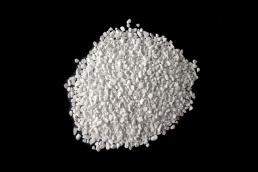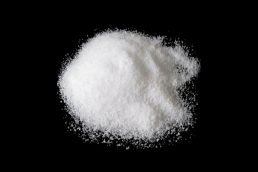
production
Potassium is a relatively abundant element in the Earth’s crust, and the production of potash fertilizers (such as potassium hydroxide) occurs on every inhabited continent. However, potassium is Rarely found in nature in pure form. Instead, it mixes naturally with salts containing magnesium, sodium, and chloride. (Magnesium, sodium, and chloride, respectively).
These minerals need additional processing to separate their components. Historically, K2SO2 has been made by reacting KCI with sulfuric acid. However, researchers later discovered that they could manipulate a number of Earth’s minerals to produce K2SO4, the most common method of production today. For example, natural minerals containing K (such as shunt) are extracted and carefully washed with water and salt solutions to eliminate by-products and produce K2SO4. The mining industry uses similar processes to extract K2SO4 from the Great Salt Lake in Utah from underground reserves.
Production method
Potassium sulfate is produced in a variety of ways, including the reaction of potassium chloride with the mineral Langenbit, potassium nitrate with sulfuric acid, the reaction of potassium chloride with sulfuric acid or sulfur dioxide, water and oxygen, and the recycling of sugar waste.
But it is usually produced by the reaction of potassium chloride with sulfuric acid, similar to the Mannheim process for the production of sodium sulfate. This process involves the moderate formation of potassium bisulfate, a thermogenic reaction that occurs at room temperature:
HCI + KHSO4 —> KCI + H2SO4
The second stage is the endothermic process and requires input energy:
HCI + K2SO4 —> KCI + KHSO4
Application of potassium sulfate
As we have said, potassium sulfate has various applications in different industries, which we will explain in the following:
– Application in agriculture
– Application of potassium sulfate in food industry
– In the food industry as a flavoring
– As a substitute for common salt (sodium chloride)
– In the production of chemicals and chemical additives
– Application in cosmetics
– Application in biotechnology
– Application in industry
– Application in pharmacy
Properties of potassium sulfate
Melting point: 1067 degrees Celsius
Boiling point: 1689 degrees Celsius
Density: 2.66 grams per cubic centimeter
Solubility: H2O at 0.5 mm 20 ° C, clear, colorless
– Specific weight: 2.662
– White color
– Odor: No odor
– Water solubility: 110 g / l (20 ° C)
Merck: 14.7674
– Stability: Stable
– Chemical formula: K2SO4
– Molar mass: 174,259 grams per mole
Appearance: Solid white
Melting point: 1069 degrees Celsius (1956 degrees Fahrenheit: 1342 K)
Boiling point: 1689 degrees Celsius (3072 degrees Fahrenheit; 1962 degrees Celsius)
Solubility in water: 111 g / l (20 ° C) 120 grams per liter (25 degrees Celsius) | 240 grams per liter (100 degrees Celsius)
Solubility: Slightly soluble in glycerol Soluble in acetone, alcohol, CS2
Refractive index: (n) 1.495
Flash point: non-flammable
Some of our customers:
Potassium Sulfate
Potassium sulfate with the chemical formula K2SO4 is one of the chemicals that is widely used in industry.
Potassium sulfate is usually in the form of white powder, white (or colorless) crystals, or white granules. Other features of this product include its bitter and salty taste. Potassium sulfate is easily soluble in water with a boiling point of 1689 ° C and a melting point of 1069 ° C but is insoluble in ethanol.
The pH of this product is between 5.5 to 8.5, so it has many applications in various industries.






